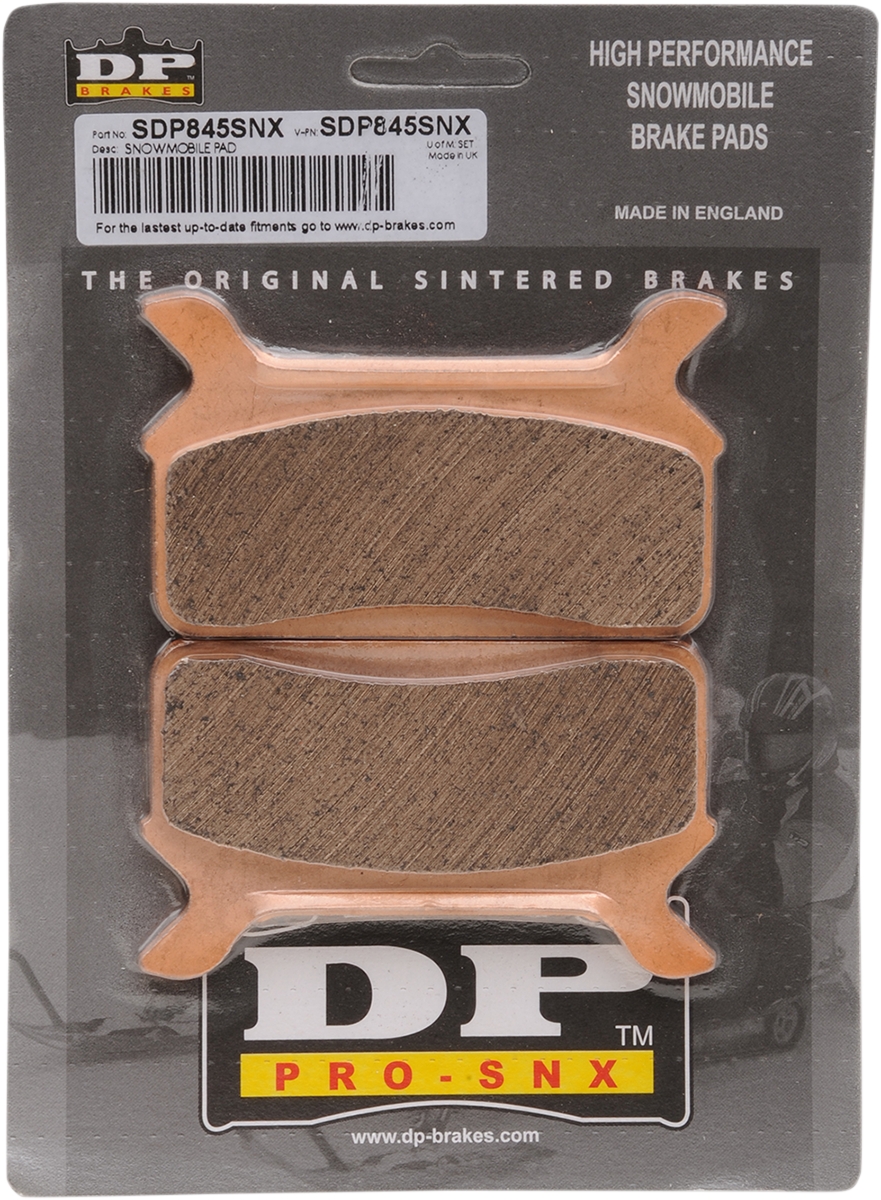Dp Brakes Snx High Friction Hh+ Snowmobile Pads Pad Snow Polaris on 2040-parts.com
Toccoa, Georgia, United States
|
SNX High Friction HH+ Snowmobile Pads
 |
Brakes for Sale
 Arctic cat kitty cat brake bracket kittycat cable shoe pad holder mount drum(US $29.99)
Arctic cat kitty cat brake bracket kittycat cable shoe pad holder mount drum(US $29.99) Arctic cat firecat 700 efi brake line / wilwood hydraulic brakeline hose pipe(US $30.00)
Arctic cat firecat 700 efi brake line / wilwood hydraulic brakeline hose pipe(US $30.00) 12 13 14 15 16 arctic cat m1100 m 1100 f1100 f turbo brake rotor caliper f 800
12 13 14 15 16 arctic cat m1100 m 1100 f1100 f turbo brake rotor caliper f 800 Brp ski doo brake pad arm p/n 581118900(US $19.99)
Brp ski doo brake pad arm p/n 581118900(US $19.99) 05 polaris fusion 900 efi 06 rmk iq 700 disc brake rotor(US $18.00)
05 polaris fusion 900 efi 06 rmk iq 700 disc brake rotor(US $18.00) 05 polaris fusion 900 efi 06? iq 600 rmk brake caliper master cylinder switches(US $69.00)
05 polaris fusion 900 efi 06? iq 600 rmk brake caliper master cylinder switches(US $69.00)
Jaguar E-Type celebrates 50 years
Mon, 28 Feb 2011As the Geneva motor show opens its doors to the press, it is quite apt that the Jaguar E-Type be honored by a new exhibition at the Design Museum in London, UK. Commemorating the iconic vehicle's 50th anniversary since it was first unveiled at the Swiss motoring exposition, the 'Tank' installation at the Design Museum has played host to many cars in the past, from the Model T Ford through to the Citroen C6, but none seem quite as fitting as the E-Type Jaguar. Possibly the most infamous car to come from Coventry, the E-Type is revered as a design classic and is still admired in droves to this day.
This week in 1994: We meet the Rolls-Royce Flying Spur
Mon, 24 Jun 2013Rolls-Royce introduced the Flying Spur in 1994 as the fastest vehicle the brand had ever made. Its top speed was 140 mph and it flew to 60 mph in seven seconds flat with the help of the 6.75-liter turbocharged V8 under the hood. The only catch?
Volcanic Ash – bad for your car’s paintwork
Wed, 21 Apr 2010Volcanic ash on the back of our test Range Rover Sport Who says we don’t do consumer advice at Cars UK? We know that the Government claims every jet will fall out of the sky if they fly with even a cup full of volcanic ash in the atmosphere. The argument goes that all that dust and stone and rubbish will get sucked in to the engines, melt and then solidify to trash the engine.


